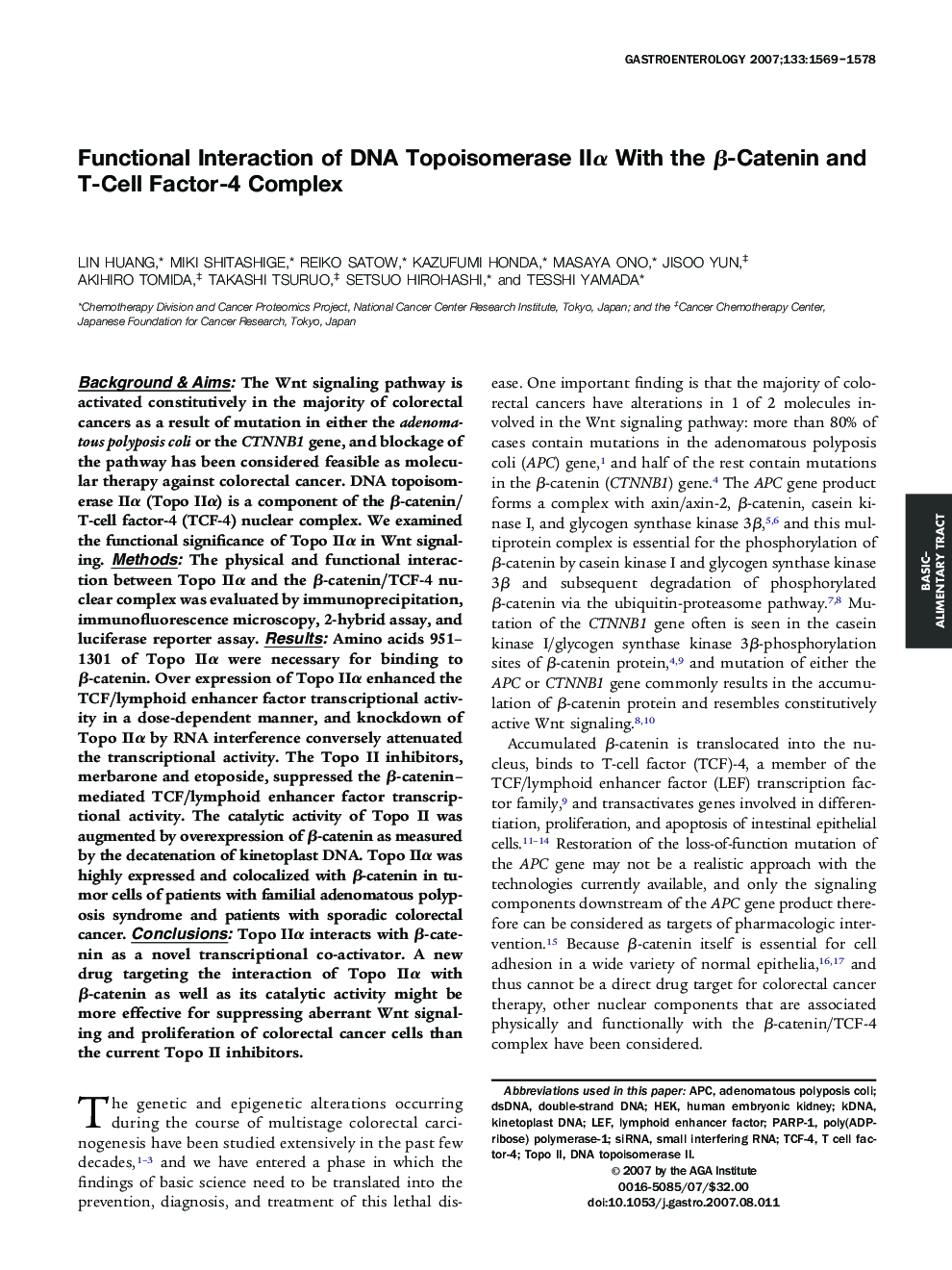| Article ID | Journal | Published Year | Pages | File Type |
|---|---|---|---|---|
| 3296007 | Gastroenterology | 2007 | 10 Pages |
Abstract
Background & Aims: The Wnt signaling pathway is activated constitutively in the majority of colorectal cancers as a result of mutation in either the adenomatous polyposis coli or the CTNNB1 gene, and blockage of the pathway has been considered feasible as molecular therapy against colorectal cancer. DNA topoisomerase IIα (Topo IIα) is a component of the β-catenin/T-cell factor-4 (TCF-4) nuclear complex. We examined the functional significance of Topo IIα in Wnt signaling. Methods: The physical and functional interaction between Topo IIα and the β-catenin/TCF-4 nuclear complex was evaluated by immunoprecipitation, immunofluorescence microscopy, 2-hybrid assay, and luciferase reporter assay. Results: Amino acids 951-1301 of Topo IIα were necessary for binding to β-catenin. Over expression of Topo IIα enhanced the TCF/lymphoid enhancer factor transcriptional activity in a dose-dependent manner, and knockdown of Topo IIα by RNA interference conversely attenuated the transcriptional activity. The Topo II inhibitors, merbarone and etoposide, suppressed the β-catenin-mediated TCF/lymphoid enhancer factor transcriptional activity. The catalytic activity of Topo II was augmented by overexpression of β-catenin as measured by the decatenation of kinetoplast DNA. Topo IIα was highly expressed and colocalized with β-catenin in tumor cells of patients with familial adenomatous polyposis syndrome and patients with sporadic colorectal cancer. Conclusions: Topo IIα interacts with β-catenin as a novel transcriptional co-activator. A new drug targeting the interaction of Topo IIα with β-catenin as well as its catalytic activity might be more effective for suppressing aberrant Wnt signaling and proliferation of colorectal cancer cells than the current Topo II inhibitors.
Keywords
Related Topics
Health Sciences
Medicine and Dentistry
Gastroenterology
Authors
Lin Huang, Miki Shitashige, Reiko Satow, Kazufumi Honda, Masaya Ono, Jisoo Yun, Akihiro Tomida, Takashi Tsuruo, Setsuo Hirohashi, Tesshi Yamada,
